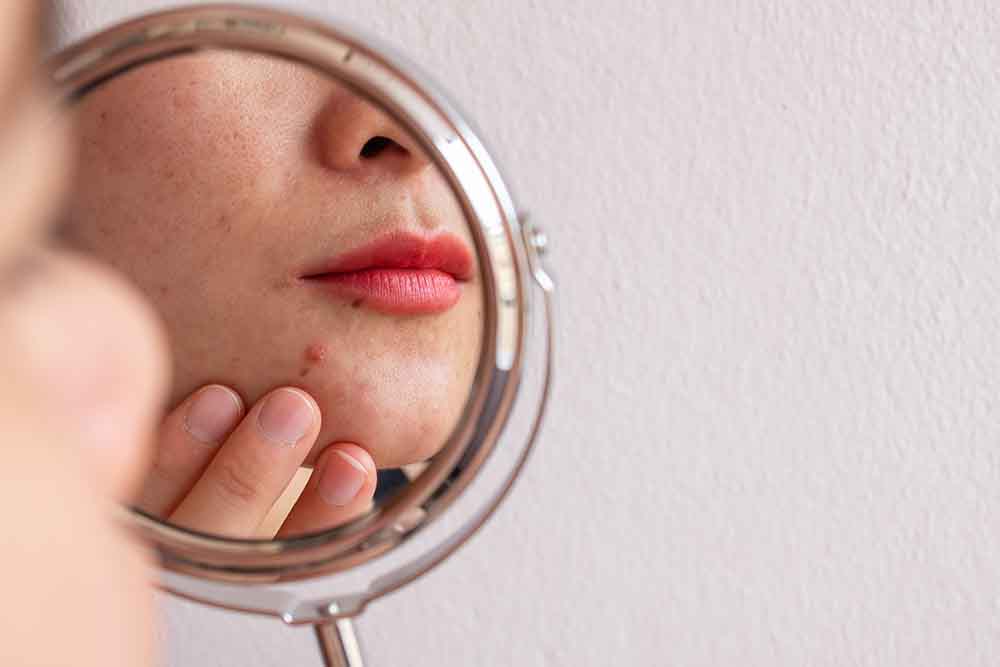While experts and the internet have raised an SOS appeal for sunscreen usage, the position of the versatile skincare hero aka- sunscreen in your skincare routine is highly ranked. Sunscreen is a well-known essential for skin protection, but do you truly grasp why sunscreen is so important? Our skin serves as a natural barrier against harmful ultraviolet (UV) radiation, making it imperative to shield ourselves from the damaging effects of UV rays. Even on cloudy days, our skin remains vulnerable to the sun's rays, which can lead to discolouration, premature lines over time and adverse effects like skin-related diseases.
The most impactful change you can make in your daily routine to safeguard your skin is to apply sunscreen each morning and reapply it throughout the day. Equally critical is keeping a vigilant eye on your skin and promptly contacting a Dermatologist if you detect any changes or new spots. Here is how a sunscreen aims to protect and aid your skin towards better functioning and appearance.

1. Prevent Sunburn: Basking in the sun for sure is very soothing, but the aftermath, of the sunburn certainly is not. Dermatologists universally stress the importance of skin protection to avoid sunburn. Prolonged sun exposure without sunscreen, can lead to sunburn and repeated sunburns not only damage your skin barrier but also rapidly increase the production of melanocytes that increase the risk of skin cancer. If you experience severe sunburn with blisters, consult a dermatologist who can assess the burn's severity and recommend products to alleviate discomfort and minimize scarring. Early intervention, including the use of oral or topical steroids, can mitigate some of the damage caused by sunburns.

2. Reduce the Risk of Skin Cancer: Employing sunscreen daily, even on overcast days, is one of the most effective ways to lower the risk of skin cancer. Too much exposure to UV light causes damage to your DNA which leads to uncontrolled growth of skin cells leading to skin cancer. Using sunscreen with a minimum SPF of 30 multiple times a day provides a substantial reduction in this risk. For added protection, opt for a higher SPF. When spending extended periods outdoors or engaging in water activities, reapply sunscreen every two hours.
3. Prevent Skin Discolouration: You might often observe that either your existing spots get darker, and more stark in the sunlight or you begin to see new ones form. That is because UV rays boost the pace of melanin synthesis, the pigment that gives your skin its brown colour. Dealing with discoloured patches or sun spots can be a long-form task and especially challenging when they appear later in life. Your sunscreen plays an important role in controlling these brown patches and spots while giving your radiant healthy skin.

4. Reduce Inflammation: Exposure to UV rays can cause painful redness and inflammation, particularly for individuals with skin conditions such as psoriasis or rosacea. Sunscreen is equally important if you have sensitive skin as it effectively prevents inflammation induced by harmful rays. Opt for sunscreens with gentle ingredients like zinc oxide or titanium dioxide. Avoid spray-on sunscreens, as they may contain harsh components, including alcohol that can lead to skin dryness. For guidance on your specific skin concerns or product selection, seek assistance from your local board-certified dermatologist.
Tips for Choosing Sunscreen: Selecting the right sunscreen can be overwhelming due to the plethora of options available. But here are three aspects you should consider.
• Make sure you pick a sunscreen as per your skin type, a mattifying one for oily skin, a moisturizing-cream-based formula for dry skin and a mineral sunscreen for oily skin.
• Consider the SPF level, make sure you choose a formulation that has an SPF of 30 and above.
• Ease of re-application, choose a sunscreen that is easy to reapply.
FAQ
1. Is it important to use sunscreen every day?
A. Yes, it is extremely important to apply sunscreen every day and retouch it every two hours to help reduce UV damage and keep your skin healthy.
2. What type of sunscreen is best for oily skin?
A. If you have oily skin, reach out for a non-comedogenic, lightweight mattifying sunscreen that won’t clog your pores yet give you optimal sun protection.